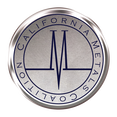
FREQUENTLY ASKED QUESTIONS:
Why is my metal company required to have a storm water permit?
The permit requirement is triggered by your industry code, regardless of size, type of operation, or location. The permit covers Standard Industrial Classification (SIC) codes 2000-3999 and 5093. Nearly all metal facilities fall under 3300, 3400 or 5093.
What is my Standard Industrial Code (SIC)?
You will need to do a keyword search (CLICK HERE) to find your SIC. Your insurance broker will also know your SIC. If you have more than one SIC, the storm water program only looks at your primary code.
Do all states have storm water permit requirements?
Yes. It is a federal law implemented by states.
What if I lease my property?
Companies that lease their property are responsible for the activities on that property. Therefore, leasees are required to comply with the storm water program.
Who do I contact about complying with the storm water law and getting a permit?
The program is complex, and there are many risks involved, including enforcement from Regional Water Boards, cities, and private 3rd party attorneys. We suggest contacting us first to walk you through the program.
What is the background of the storm water law?
Section 402 (p) of the Clean Water Act mandates that the U.S. EPA establish storm water regulations under the National Pollutant Discharge Elimination System (NPDES). Fed-EPA’s November 16, 1990 storm water rule requires industrial facilities to submit an individual permit application, participate in a two-part group permit application, or seek coverage under a promulgated general permit—such as an individual state program.
When did California's program begin?
November 19, 1991, the California State Water Resources Control Board, under NPDES authority delegated by Fed-EPA, approved a general permit for California facilities with “storm water discharges associated with industrial activity.”
What is a WDID# and how do I get one?
The Waste Discharge Identification number (WDID) is provided once you file for a storm water permit and pay a fee. It is issued by the State Water Board.
I believe my facility has no exposure to storm water, what can I do?
The No Exposure Certification (NEC) is a notification submitted to the SWRCB that industrial activities at the site are not exposed to rain water and that no site-related contaminants will be picked up by storm water runoff and discharge. CLICK HERE to learn more about the NEC.
Can I lose my business license for not having a storm water permit?
Yes, under SB 205 (Hertzberg), all cities and counties that issue a business license must check that you have a storm water permit. If this information is left a blank, the business license will likely be deemed incomplete. This includes new business licenses starting January 1, 2020, and reissued business licenses on your renewal date after January 1, 2020. Click Here to Learn More about SB 205.
Can you further elaborate on Mandatory BMPs in the new permit?
The 1997 permit allowed dischargers to "consider" which non-structural and structural best management practices (BMPs) should be implemented to reduce or prevent pollutants in storm water discharges. The newest IGP requires the implementation of numerous "minimum BMPs," including good housekeeping requirements, preventative maintenance, material handling and waste management, erosion and sediment controls, and employee training programs. Additional "advanced BMPs," including exposure minimization, storm water containment, discharge reduction, and treatment control BMPs, must also be implemented as necessary to reduce or prevent pollutant discharge.
How many samples are required to collect in the new permit?
4 samples per year, unless you belong to a storm water group such as the Metals Industry Storm Water Group, where you can receive reduced sampling. General sampling protocols include 2 Qualifying Storm Events (QSE) within the first half of each reporting year (July 1 to December 31) and 2 QSE within the second half of each reporting year (January 1 to June 30).
Who enforces this law?
After a slow start, enforcement has significantly increased in recent years. The includes the state water board and 9 regional water boards. Private attorneys from anywhere in the US can also sue your company under the Clean Water Act, which can be common in California. Overall, facilities throughout the state have received scrutiny and fines for failing to comply with the required permit. As an example, the Storm Water Enforcement Act of 1998 mandates minimum fines of $1,000 per year and $5,000 per year for failure to file an annual report and failure to file a notice of intent to comply with the general storm water permit—moreover these fines are retroactive to 1991. Lawsuits from private groups can file suit, with lawsuits settlements ranging from $50,000-$125,000. Cities have their own storm water permits (MS4) and are required to check industrial facilities in their jurisdiction. SB 485 was signed into law in 2013 and requires weights and measures to check for storm water permits with each Weightmaster scale. And the overall general knowledge of how storm water impacts our environment continues to increase.
Is there a permit fee?
Yes, the fee is set by the State Water Resources Control Board SWRCB.
Where do I file my reports electronically under the new permit?
It is filed through the Storm Water Multiple Application and Report Tracking System - SMARTS.
Can I download a copy of the 2014 Industrial General Permit (IGP)?
CLICK HERE
Why is my metal company required to have a storm water permit?
The permit requirement is triggered by your industry code, regardless of size, type of operation, or location. The permit covers Standard Industrial Classification (SIC) codes 2000-3999 and 5093. Nearly all metal facilities fall under 3300, 3400 or 5093.
What is my Standard Industrial Code (SIC)?
You will need to do a keyword search (CLICK HERE) to find your SIC. Your insurance broker will also know your SIC. If you have more than one SIC, the storm water program only looks at your primary code.
Do all states have storm water permit requirements?
Yes. It is a federal law implemented by states.
What if I lease my property?
Companies that lease their property are responsible for the activities on that property. Therefore, leasees are required to comply with the storm water program.
Who do I contact about complying with the storm water law and getting a permit?
The program is complex, and there are many risks involved, including enforcement from Regional Water Boards, cities, and private 3rd party attorneys. We suggest contacting us first to walk you through the program.
What is the background of the storm water law?
Section 402 (p) of the Clean Water Act mandates that the U.S. EPA establish storm water regulations under the National Pollutant Discharge Elimination System (NPDES). Fed-EPA’s November 16, 1990 storm water rule requires industrial facilities to submit an individual permit application, participate in a two-part group permit application, or seek coverage under a promulgated general permit—such as an individual state program.
When did California's program begin?
November 19, 1991, the California State Water Resources Control Board, under NPDES authority delegated by Fed-EPA, approved a general permit for California facilities with “storm water discharges associated with industrial activity.”
What is a WDID# and how do I get one?
The Waste Discharge Identification number (WDID) is provided once you file for a storm water permit and pay a fee. It is issued by the State Water Board.
I believe my facility has no exposure to storm water, what can I do?
The No Exposure Certification (NEC) is a notification submitted to the SWRCB that industrial activities at the site are not exposed to rain water and that no site-related contaminants will be picked up by storm water runoff and discharge. CLICK HERE to learn more about the NEC.
Can I lose my business license for not having a storm water permit?
Yes, under SB 205 (Hertzberg), all cities and counties that issue a business license must check that you have a storm water permit. If this information is left a blank, the business license will likely be deemed incomplete. This includes new business licenses starting January 1, 2020, and reissued business licenses on your renewal date after January 1, 2020. Click Here to Learn More about SB 205.
Can you further elaborate on Mandatory BMPs in the new permit?
The 1997 permit allowed dischargers to "consider" which non-structural and structural best management practices (BMPs) should be implemented to reduce or prevent pollutants in storm water discharges. The newest IGP requires the implementation of numerous "minimum BMPs," including good housekeeping requirements, preventative maintenance, material handling and waste management, erosion and sediment controls, and employee training programs. Additional "advanced BMPs," including exposure minimization, storm water containment, discharge reduction, and treatment control BMPs, must also be implemented as necessary to reduce or prevent pollutant discharge.
How many samples are required to collect in the new permit?
4 samples per year, unless you belong to a storm water group such as the Metals Industry Storm Water Group, where you can receive reduced sampling. General sampling protocols include 2 Qualifying Storm Events (QSE) within the first half of each reporting year (July 1 to December 31) and 2 QSE within the second half of each reporting year (January 1 to June 30).
Who enforces this law?
After a slow start, enforcement has significantly increased in recent years. The includes the state water board and 9 regional water boards. Private attorneys from anywhere in the US can also sue your company under the Clean Water Act, which can be common in California. Overall, facilities throughout the state have received scrutiny and fines for failing to comply with the required permit. As an example, the Storm Water Enforcement Act of 1998 mandates minimum fines of $1,000 per year and $5,000 per year for failure to file an annual report and failure to file a notice of intent to comply with the general storm water permit—moreover these fines are retroactive to 1991. Lawsuits from private groups can file suit, with lawsuits settlements ranging from $50,000-$125,000. Cities have their own storm water permits (MS4) and are required to check industrial facilities in their jurisdiction. SB 485 was signed into law in 2013 and requires weights and measures to check for storm water permits with each Weightmaster scale. And the overall general knowledge of how storm water impacts our environment continues to increase.
Is there a permit fee?
Yes, the fee is set by the State Water Resources Control Board SWRCB.
Where do I file my reports electronically under the new permit?
It is filed through the Storm Water Multiple Application and Report Tracking System - SMARTS.
Can I download a copy of the 2014 Industrial General Permit (IGP)?
CLICK HERE
